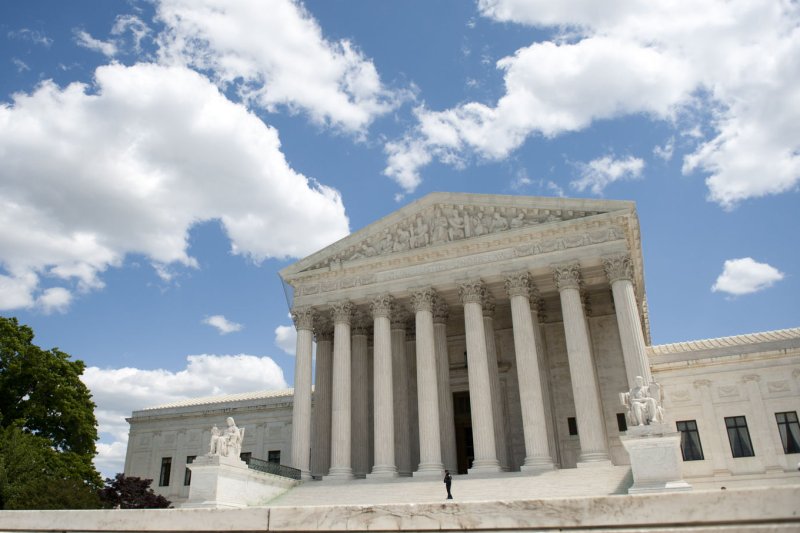WASHINGTON, April 22 (UPI) -- The Supreme Court ruled Tuesday in favor of a voter-approved Michigan law banning affirmative action in college admissions, overturning a lower court decision that invalidated the ban.
Writing for the majority in the 6-2 decision, Justice Anthony Kennedy said the court's ruling was not a judgement on the constitutionality of affirmative action, but instead determined that the lower court exceeded its authority in striking the ban.
“This case is not about how the debate about racial preferences should be resolved,” Kennedy wrote in his opinion, joined by Chief Justice John Roberts and Justice Samuel Alito. “It is about who may resolve it. There is no authority in the Constitution of the United States or in this court’s precedents for the judiciary to set aside Michigan laws that commit this policy determination to the voters.”
In her dissent, Justice Sonia Sotomayor wrote of the dangers of preventing federal courts from serving as a means to check majorities from using the ballot to disadvantage minority groups.
"Without checks, democratically approved legislation can oppress minority groups," she wrote in her dissent, joined by Justice Ruth Bader Ginsburg. "For that reason, our Constitution places limits on what a majority of the people may do. This case implicates one such limit: the guarantee of equal protection of the laws."
Justices Antonin Scalia and Clarence Thomas both agreed with the majority, but said they would have gone further to undo previous court decisions upholding cases dealing with affirmative action in education.
Justice Elena Kagan recused herself from the decision, presumably because of dealings she may have had with the case while serving as solicitor general or as dean of Harvard Law School.
The case, Schuette v. BAMN focused on Proposal 2, a 2006 ballot initiative approved by 58 percent of Michigan voters to amend the state constitution to prohibit discrimination or preferential treatment in public education, government contracting and public employment. An 8-7 decision by the United States Sixth Circuit Court of Appeals in 2012 found the ban -- specifically with regards to public education -- was unconstitutional because it made it more difficult for minorities to advocate for change.
Scheutte v. BAMN















